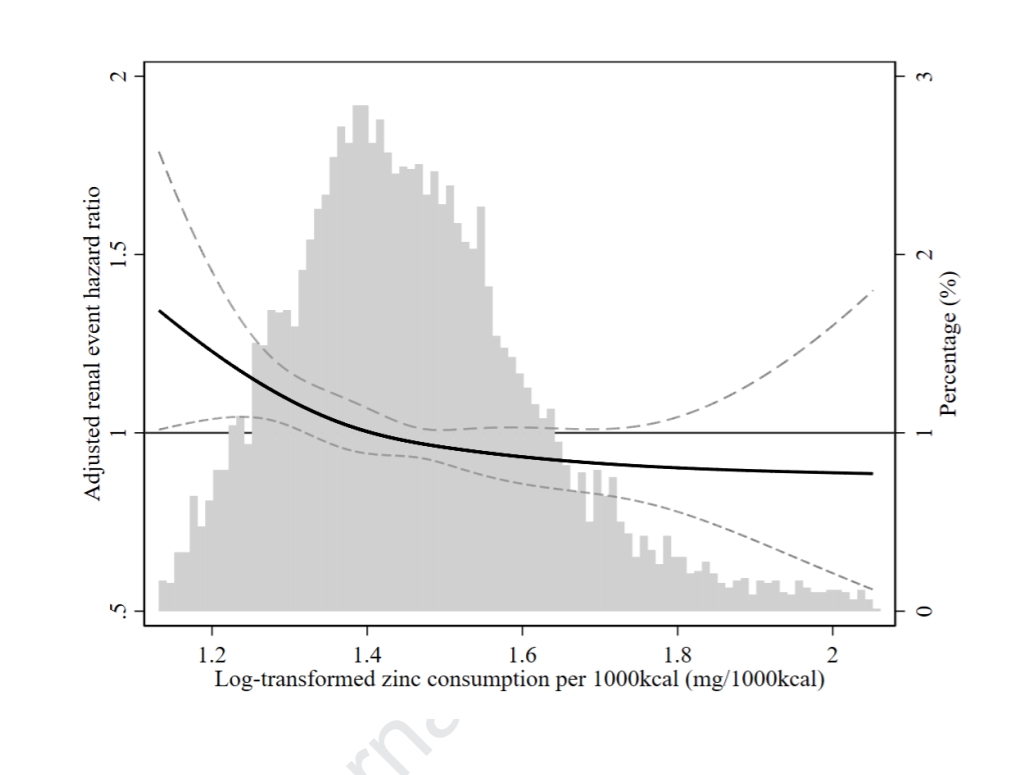Dietary zinc intake and incident chronic kidney disease
Young Su Joo, clin nutr. 2020.07.005
Background & Aims
Previous studies have shown that dietary zinc intake is closely related to cardiovascular complications and metabolic derangements. However, the effect of dietary zinc intake on renal function is not fully elucidated.
Methods
Data from the Korean Genome and Epidemiology Study were used. Dietary zinc intake was assessed by a Food Frequency Questionnaire and dietary zinc density was calculated as absolute zinc intake amount per daily energy intake (mg/1000kcal day). The participants were categorized into quartiles according to dietary zinc density. The primary end point was incident chronic kidney disease (CKD), defined as estimated glomerular filtration rate (eGFR) <60 ml/min/1.73m2.
Results
A total of 7735 participants with normal renal function was included in the final analysis. The mean age was 52.0±8.8 years, 47.5% were male, and mean eGFR was 92.1±16.1 ml/min/1.73m2. The mean daily zinc intake and zinc intake density were 8.6±3.4 mg and 4.4±0.9 mg/1000kcal, respectively. During a median follow up of 11.5 (1.7-12.5) years and 70,617 person-years of observation, CKD developed in 1409 (18.2%) participants. Multivariable cox hazard analysis revealed that risk for CKD development was significantly higher in the quartile with a mean zinc intake density of 3.6±0.2 mg/1000 kcal compared with the quartile with a mean zinc intake density of 5.6±1.0 mg/1000 kcal (Hazard ratio; 1.36; 95% Confidence Interval 1.18-1.58; P<0.001). This relationship remained significant even after adjustments for confounding factors.
Conclusion
Low dietary zinc intake may increase the risk of CKD development in individuals with normal renal function.














